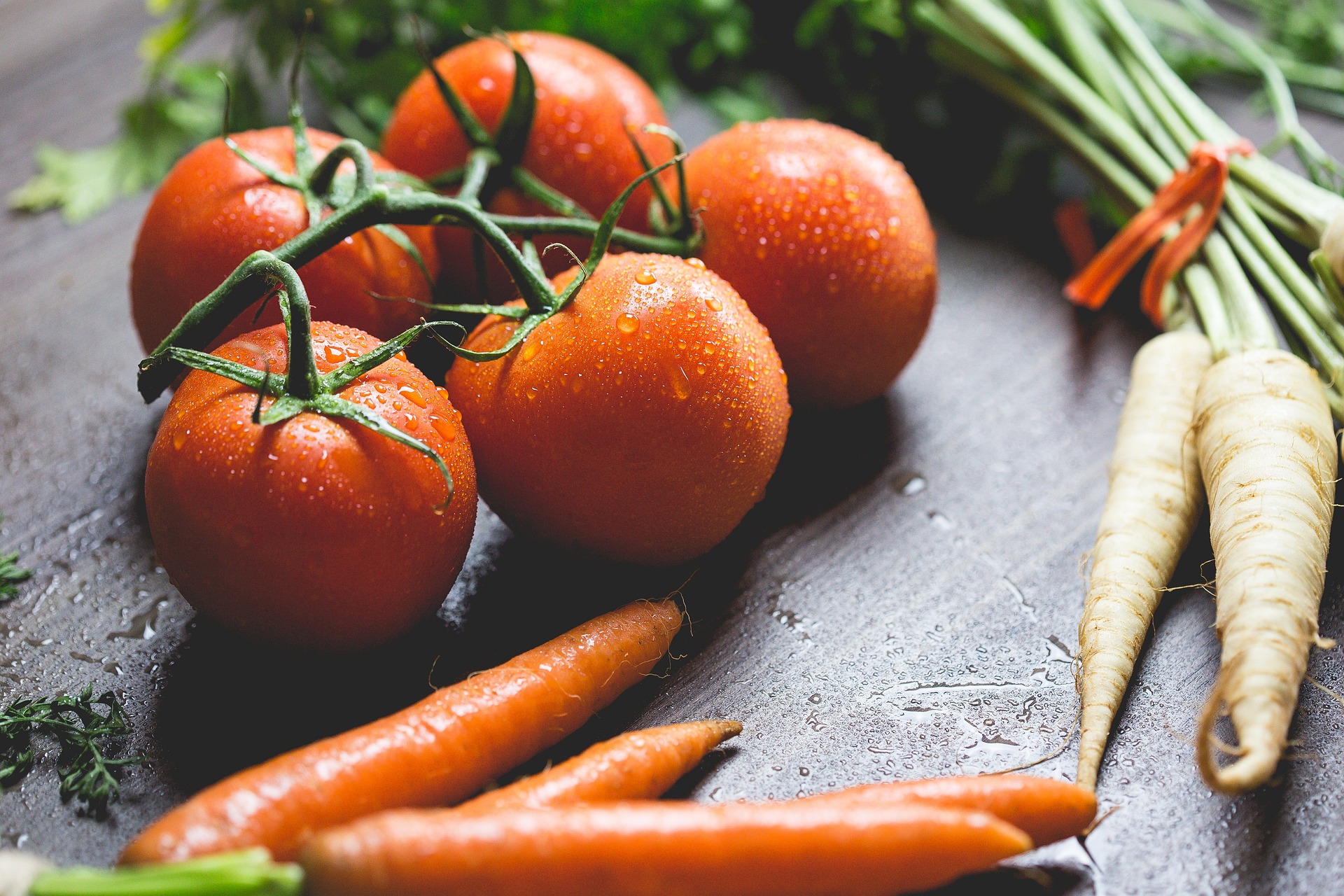Keeping produce fresh is essential for both health and economic reasons. Fresh fruits and vegetables are vital components of a nutritious diet, offering a wealth of vitamins, minerals, and antioxidants. However, improper storage can lead to spoilage, waste, and even foodborne illnesses. This guide provides comprehensive information on how to keep your produce fresh, from understanding different types of produce to implementing innovative storage solutions.
Understanding Produce Types
Produce can be broadly categorized into two main types: fruits and vegetables. Each type has unique storage needs, and even within these categories, different varieties require specific care. Understanding these nuances is the first step in keeping your produce fresh.
Fruits are often more delicate than vegetables and can be classified into subcategories like berries, citrus fruits, stone fruits, and tropical fruits. Each group has distinct characteristics and storage needs. Berries, for instance, are highly perishable and benefit from careful handling and refrigeration, while citrus fruits can often be stored at room temperature for a time before refrigeration is necessary.
Vegetables include leafy greens, root vegetables, tubers, legumes, and cruciferous vegetables. They vary in their water content, sensitivity to temperature, and ethylene production, which affects how they should be stored. Leafy greens like spinach and lettuce require high humidity and cold temperatures, whereas root vegetables such as carrots and potatoes can often be stored in a cool, dark place outside the refrigerator.
General Storage Tips
Regardless of the type of produce, certain general storage principles can help maintain freshness and extend shelf life.
Temperature control is crucial for most fruits and vegetables, which generally require refrigeration to stay fresh. However, some items are best kept at room temperature until they ripen. For example, tomatoes should be stored at room temperature to preserve their flavor and only refrigerated if they become overripe or after being cut.
Proper humidity levels are also essential. Too much moisture can lead to mold, while too little can cause dehydration. Leafy greens benefit from high humidity, which can be achieved by wrapping them in a damp paper towel and storing them in a perforated plastic bag. Conversely, mushrooms should be kept dry and stored in a paper bag to prevent them from becoming slimy.
Ethylene gas, a natural plant hormone, is produced by certain fruits and accelerates ripening. Storing ethylene-producing fruits like apples, bananas, and avocados separately from ethylene-sensitive produce like lettuce and cucumbers can prevent premature spoilage.
Cleanliness in your storage areas, including your refrigerator, helps prevent contamination and prolongs the freshness of your produce. Regularly cleaning and inspecting your storage areas can prevent mold growth and pest infestations.
Specific Storage Guidelines
Fruits
Apples should be stored in the refrigerator to maintain their crispness. Keep them away from ethylene-sensitive produce to prevent them from accelerating the ripening of other fruits and vegetables. Bananas are best stored at room temperature. Once they ripen, you can refrigerate them to slow down the ripening process, though their skins may darken.
Berries should be stored in the refrigerator and not washed until you are ready to eat them to prevent mold growth. Strawberries, blueberries, raspberries, and blackberries are particularly delicate and benefit from this method.
Citrus fruits, such as oranges, lemons, and limes, can be kept at room temperature for about a week. For longer storage, place them in the refrigerator. Grapes should be refrigerated and stored in a perforated plastic bag to maintain moisture without trapping excess humidity.
Vegetables
Leafy greens, like lettuce, spinach, and kale, should be stored in the refrigerator. Wrap them in a damp paper towel and place them in a perforated plastic bag to maintain humidity. Root vegetables, such as carrots, beets, and radishes, should be kept in a cool, dark place. Potatoes and onions do not require refrigeration and are best stored in a pantry or cellar.
Tomatoes should be stored at room temperature to maintain their flavor. Only refrigerate them if they are overripe or have been cut. Carrots can be refrigerated and stored in a container with water to maintain their crispness. Broccoli and cauliflower should be refrigerated in a perforated plastic bag to allow for air circulation and prevent moisture buildup.
Seasonal Produce
Understanding the seasonality of produce can help you select the freshest options available, as in-season fruits and vegetables are often more flavorful and have a longer shelf life.
In spring, look for strawberries, asparagus, and spinach. These items are at their peak during this season and will be fresher and more flavorful.
Summer brings an abundance of produce, including tomatoes, zucchini, and peaches. These items thrive in warm weather and are often at their best during these months.
Fall is the season for apples, squash, and Brussels sprouts. Cooler temperatures enhance the sweetness of many fall vegetables and fruits.
Winter is the time for citrus fruits, root vegetables, and hearty greens like kale. These items can withstand the colder weather and often have a robust flavor.
Organic vs. Non-Organic Storage
Organic produce, free from synthetic pesticides and fertilizers, often has different storage requirements due to its shorter shelf life. Organic produce is more susceptible to pests and mold, so it often requires closer monitoring and quicker consumption. Non-organic produce generally has a longer shelf life due to preservatives and can be stored using standard refrigeration and humidity control methods.
Innovative Storage Solutions
Advancements in technology have led to innovative storage solutions that can help keep produce fresh longer. Vacuum sealing, for instance, removes air from storage bags, significantly extending the shelf life of produce by reducing oxidation and mold growth.
Smart refrigerators can monitor humidity and temperature levels, adjusting settings automatically to optimize produce freshness. These refrigerators often come with compartments specifically designed for different types of produce.
Ethylene absorbers are specialized products that can be placed in your refrigerator to absorb ethylene gas, preventing premature ripening and spoilage. These absorbers can be particularly useful for households that store a lot of ethylene-producing fruits.
Troubleshooting Common Issues
Even with the best storage practices, issues can arise. Here are some common problems and their solutions.
Mold growth can be prevented by ensuring produce is dry before storage and using breathable bags. Wilting can be addressed by increasing humidity for leafy greens or storing them in a container with a small amount of water. Overripening can be managed by separating ethylene-producing fruits and monitoring and consuming produce promptly.
Frequently Asked Questions
Q: How can I keep apples fresh longer?
A: Store apples in the refrigerator to maintain their crispness. Keep them away from ethylene-sensitive produce to prevent them from accelerating the ripening of other fruits and vegetables.
Q: What is the best way to store bananas?
A: Bananas are best stored at room temperature. Once they ripen, you can refrigerate them to slow down the ripening process, though their skins may darken.
Q: How should I store berries to prevent mold growth?
A: Berries should be stored in the refrigerator and not washed until you are ready to eat them. This helps prevent mold growth and keeps them fresh longer.
Q: Can citrus fruits be kept at room temperature?
A: Citrus fruits, such as oranges, lemons, and limes, can be kept at room temperature for about a week. For longer storage, place them in the refrigerator.
Q: What is the best way to store grapes?
A: Grapes should be refrigerated and stored in a perforated plastic bag to maintain moisture without trapping excess humidity.
Q: How should leafy greens be stored?
A: Leafy greens, like lettuce, spinach, and kale, should be stored in the refrigerator. Wrap them in a damp paper towel and place them in a perforated plastic bag to maintain humidity.
Q: Do root vegetables need to be refrigerated?
A: Root vegetables, such as carrots, beets, and radishes, should be kept in a cool, dark place. Potatoes and onions do not require refrigeration and are best stored in a pantry or cellar.
Q: How can I keep tomatoes fresh and flavorful?
A: Tomatoes should be stored at room temperature to maintain their flavor. Only refrigerate them if they are overripe or have been cut.
Q: What is the best way to store carrots?
A: Carrots can be refrigerated and stored in a container with water to maintain their crispness.
Q: How should broccoli and cauliflower be stored?
A: Broccoli and cauliflower should be refrigerated in a perforated plastic bag to allow for air circulation and prevent moisture buildup.
Q: What are some tips for keeping produce fresh in the spring?
A: In spring, look for strawberries, asparagus, and spinach. These items are at their peak during this season and will be fresher and more flavorful.
Q: What summer produce should I look for to ensure freshness?
A: Summer brings an abundance of produce, including tomatoes, zucchini, and peaches. These items thrive in warm weather and are often at their best during these months.
Q: How can I store fall produce to keep it fresh?
A: Fall is the season for apples, squash, and Brussels sprouts. Cooler temperatures enhance the sweetness of many fall vegetables and fruits.
Q: What is the best way to store winter produce?
A: Winter is the time for citrus fruits, root vegetables, and hearty greens like kale. These items can withstand the colder weather and often have a robust flavor.
Q: Does organic produce have different storage needs than non-organic produce?
A: Organic produce, free from synthetic pesticides and fertilizers, often has different storage requirements due to its shorter shelf life. Organic produce is more susceptible to pests and mold, so it often requires closer monitoring and quicker consumption.
Q: How can vacuum sealing help keep produce fresh?
A: Vacuum sealing removes air from storage bags, significantly extending the shelf life of produce by reducing oxidation and mold growth.
Q: What are smart refrigerators and how do they help keep produce fresh?
A: Smart refrigerators can monitor humidity and temperature levels, adjusting settings automatically to optimize produce freshness. These refrigerators often come with compartments specifically designed for different types of produce.
Q: What are ethylene absorbers and how do they work?
A: Ethylene absorbers are specialized products that can be placed in your refrigerator to absorb ethylene gas, preventing premature ripening and spoilage. These absorbers can be particularly useful for households that store a lot of ethylene-producing fruits.
Q: How can I prevent mold growth on my produce?
A: Mold growth can be prevented by ensuring produce is dry before storage and using breathable bags.
Q: What can I do if my leafy greens are wilting?
A: Wilting can be addressed by increasing humidity for leafy greens or storing them in a container with a small amount of water.
Q: How can I manage overripening of my fruits?
A: Overripening can be managed by separating ethylene-producing fruits and monitoring and consuming produce promptly.
Q: How often should I clean my refrigerator to keep produce fresh?
A: Regularly cleaning your refrigerator helps prevent contamination and prolongs the freshness of your produce. Aim to clean it at least once a month.
Q: What is the best way to store avocados?
A: Avocados should be stored at room temperature until they ripen. Once ripe, you can refrigerate them to slow down the ripening process.
Q: How can I keep cucumbers fresh longer?
A: Cucumbers should be stored in the refrigerator. Wrap them in a damp paper towel and place them in a perforated plastic bag to maintain humidity.
Q: What is the best way to store herbs?
A: Herbs can be stored in the refrigerator. Wrap them in a damp paper towel and place them in a perforated plastic bag or a glass of water covered with a plastic bag.
Q: Can I freeze produce to extend its shelf life?
A: Yes, many fruits and vegetables can be frozen to extend their shelf life. Blanch vegetables before freezing to preserve their color and texture.
Q: How should I store mushrooms to prevent them from becoming slimy?
A: Mushrooms should be kept dry and stored in a paper bag in the refrigerator to prevent them from becoming slimy.
Q: What is the best way to store peppers?
A: Peppers should be stored in the refrigerator. Place them in a perforated plastic bag to allow for air circulation.
Q: How can I keep onions fresh and prevent them from sprouting?
A: Onions should be stored in a cool, dark place with good air circulation. Avoid storing them in plastic bags, which can trap moisture and lead to sprouting.
Q: Can I store different types of produce together?
A: It’s best to store ethylene-producing fruits separately from ethylene-sensitive produce to prevent premature ripening and spoilage.
Q: How can I tell if my produce is still fresh?
A: Look for signs of spoilage such as mold, discoloration, and an off smell. Fresh produce should have a vibrant color, firm texture, and a pleasant aroma.
Q: What is the best way to store garlic?
A: Garlic should be stored in a cool, dark place with good air circulation. Avoid refrigerating whole garlic bulbs, as this can cause them to sprout.
Q: How can I keep berries fresh during transport?
A: Keep berries cool and dry during transport. Use a cooler bag with ice packs if traveling for an extended period.
Q: What is the best way to store melons?
A: Melons should be stored at room temperature until they ripen. Once ripe, refrigerate them to extend their shelf life.
Q: How should I store fresh corn?
A: Fresh corn should be stored in the refrigerator with the husks on to maintain moisture. Use it as soon as possible for the best flavor.
Q: Can I store produce in airtight containers?
A: Some produce can be stored in airtight containers, but it’s important to consider humidity and air circulation. Use perforated bags or containers with ventilation for items that require airflow.
Q: How can I keep my produce fresh during a power outage?
A: During a power outage, keep your refrigerator and freezer doors closed to maintain the temperature. Use ice packs or a cooler for items that need to stay cold.
Conclusion
Keeping your produce fresh requires understanding the specific needs of each type of fruit and vegetable, maintaining optimal storage conditions, and utilizing innovative solutions. By following the guidelines provided in this comprehensive guide, you can enjoy fresh, nutritious produce for longer periods, reducing waste and enhancing your overall well-being.
This guide aims to provide you with detailed information and practical tips to help you become more proficient in storing and maintaining the freshness of your produce. Whether you’re a home cook, a health enthusiast, or someone looking to reduce food waste, these insights will serve as valuable tools in your daily life.



